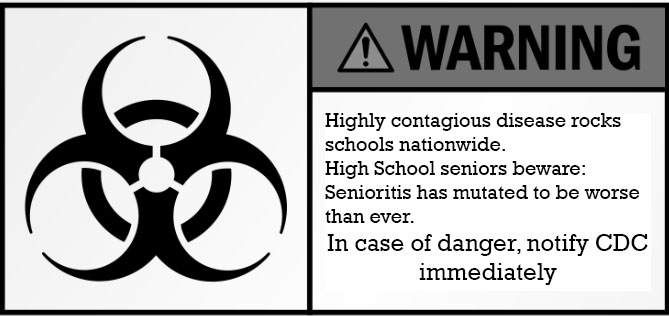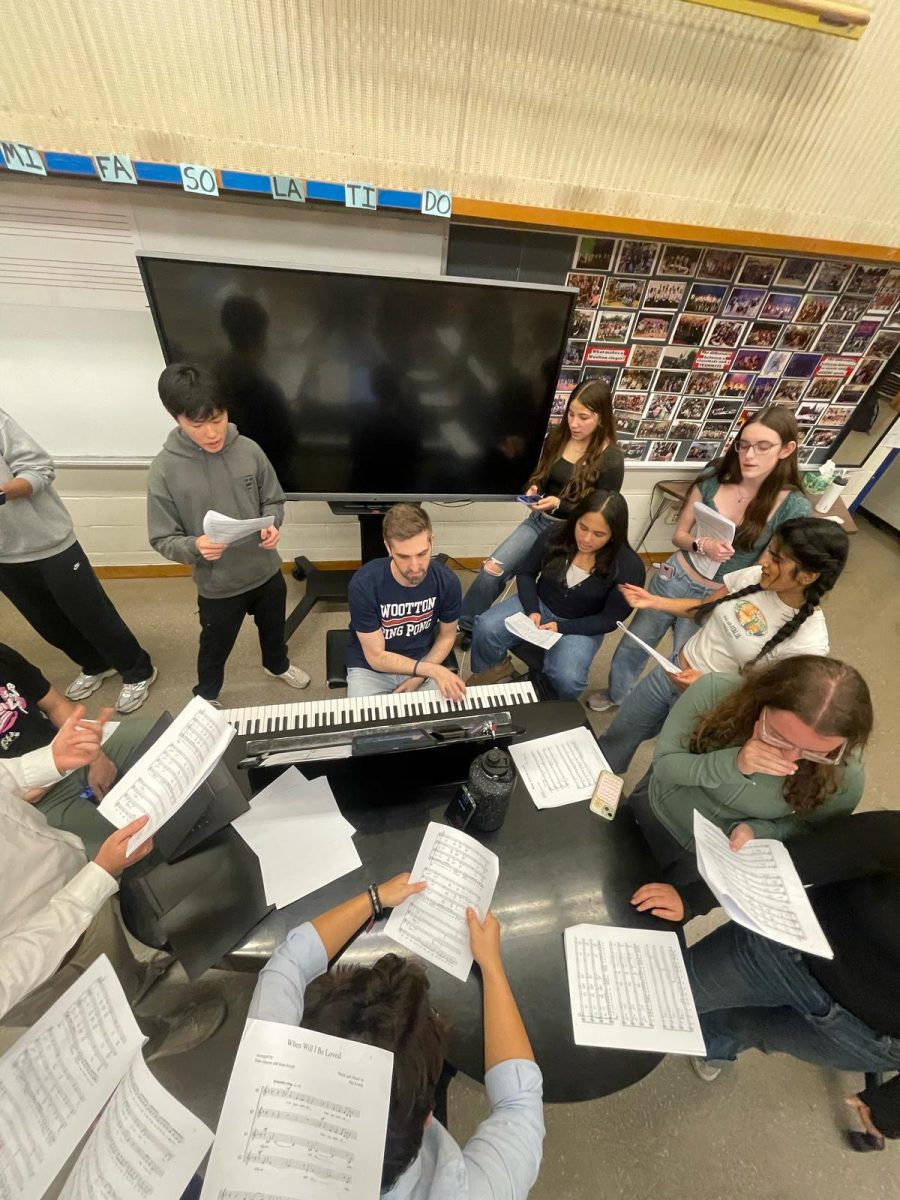The Center for Disease Control (CDC) is issuing an official outbreak warning for a highly contagious virus in the school systems nationwide. The Senioritis Plague has resurfaced and appears to be more dangerous than ever. The strain appears to have mutated, targeting only a specific population in society. High school seniors appear to be the only students at risk of infection.
The CDC chief contraction experts have reason to believe that the high levels of stress over a period of three and a half years have weakened the immune systems of these brave victims. Once the immune system was at a vulnerable state, a glimpse of hope in the form of the final months of their high school education created the perfect environment for the virus to take hold of the defenseless seniors. At this time, it appears that the virus is transmitted most frequently through the following: College acceptance letters
The CDC’s investigative teams are still unsure if the acceptance documents have been lined with the virus or if another method of dispersal is being used.
As a result of the infection, students exhibit similar symptoms to years prior. Infected students smile more, check Edline on fewer occasions, socialize more frequently both in and out of school and discuss plans for the future with heightened optimism.
The testimonies of the victims themselves have been most distressing. “I have fully embraced the new grading policy,” senior Arjun Pothuri said.
It is possible that the county may have been responsible for the recent outbreak. “I feel more comfortable turning stuff in at the last minute,” Pothuri said.
It is unsure the exact number of contaminated students, but the estimated number is in the hundreds.
Chief medical psychologist Jennifer Bauer expressed her hypothesis for the existence of said symptoms. “The excessive and uncharacteristic joy and relaxation has confirmed our greatest fears,” Bauer said. “The joy expressed by the seniors indicates that the virus has made its way into the frontal lobe, causing continuous irrational behavior.”
Experts are working tirelessly to develop countermeasures to stop or at least slow the spread of the contagion. Some success has been observed when administering in-class essays and anatomy lab practicals. However, these tactics are a short term defense and it is unclear how much longer they will remain effective.
The CDC requests that individuals remain vigilant. In modern medicine, advances are made everyday. Stay strong. Further updates will be provided soon.
Josh Friedman
Opinion Editor






![The 2025-2026 Editorial Board Alex Grainger, Cameron Cowen, Helen Manolis, Emory Scofield, Ahmed Ibrahim, Rebekah Buchman, Marley Hoffman, Hayley Gottesman, Pragna Pothakamuri and Natalie Pak (Chase Dolan not pictured) respond to the new MCPS grading policy. “When something that used to be easy suddenly becomes harder, it can turn [students’] mindset negative, whereas making something easier usually has a better impact. I think that’s where a lot of the pushback comes from. But if you put emotions aside, I do think this change could help build stronger work ethic,” Ibrahim said.](https://woottoncommonsense.com/wp-content/uploads/2025/09/fqr5bskTXpn0LRQMmKErLuNKdQYBlL726cFXBaWF-1200x900.jpg)

